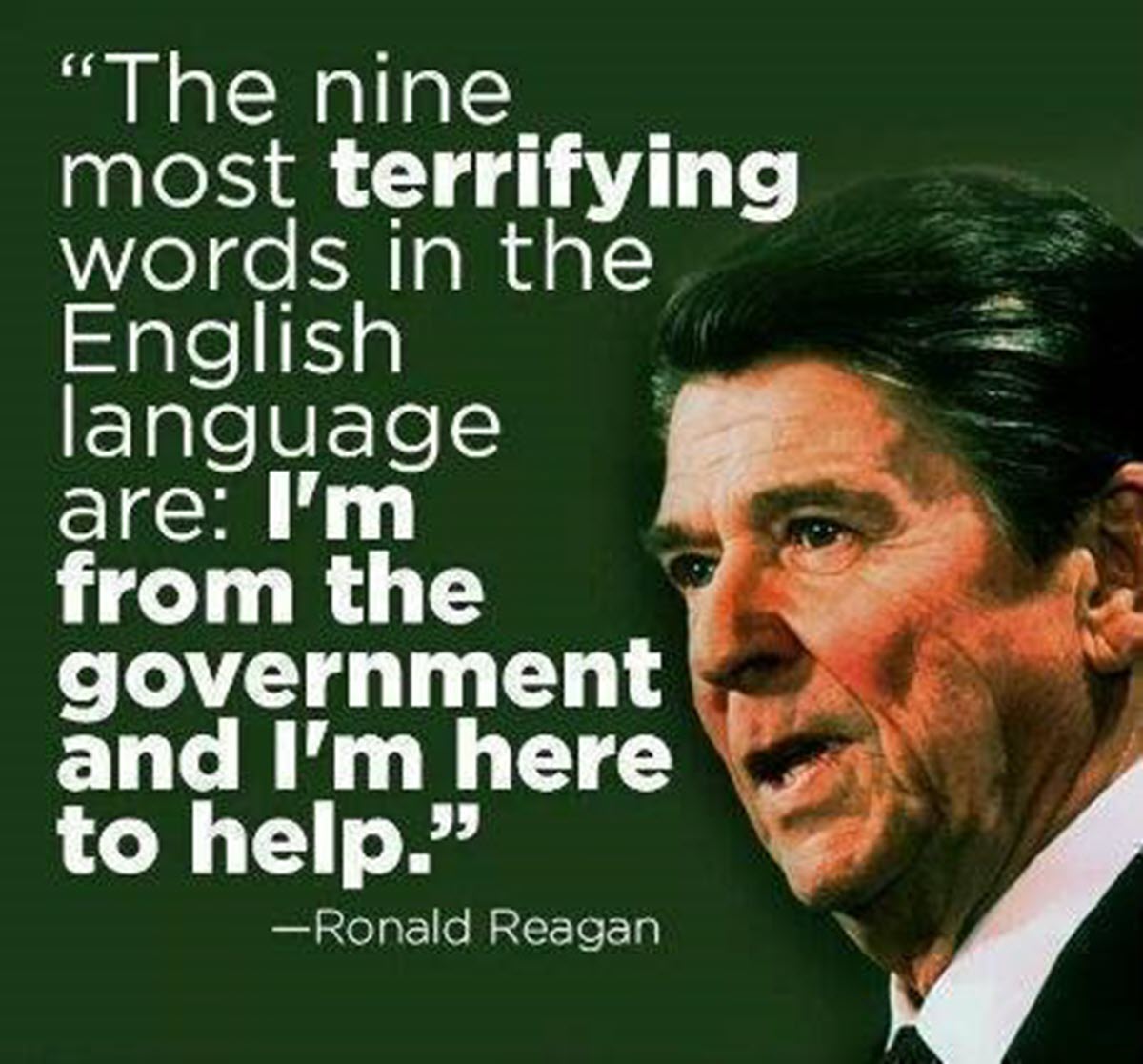Famous words from Ronald Reagan. "Help" from the government can, and often is, destructive. Government entitlements create perverse incentives that change human behavior to the detriment of individuals, families and society. All the while, those who invented the war on inequality, poverty, whatever, feel righteous and pure, rarely understanding their involvement in the expansion of the problems they sought to solve. Willful blindness keeps the ideologies from ever admitting their culpability in the destruction of the lives of others.
The trouble is that the connection between government aid and antisocial behavior, failed families and poverty are not well understood or talked about or taught to the next generation of policy-makers. Nothing will change until the public understands how human nature is being manipulated and lives ruined - with both good and bad intentions. If it is your life going down the toilet, it doesn't matter if the one helping you meant you no harm.

Wall Street Journal, Opinion
Government subsidies for antisocial behavior stalled decades worth of black progress.
By Jason L. Riley, Sept. 21, 2021
Excerpts:
Liberals view a larger welfare state as an unalloyed good, but what’s the track record? Entitlement programs were dramatically expanded in the 1960s in the service of a war on poverty, yet poverty fell at a slower rate after the Great Society initiatives were implemented, and overall dependency on the government for food, shelter and other basic necessities increased. According to Howard Husock, a scholar at the American Enterprise Institute and author of a coming book on housing policy, “The Poor Side of Town: And Why We Need It,” the median time a family spends in New York City public housing today is 19 years. And 10% of public housing residents in the city have been there for more than 40 years. Housing intended to help families through a rough patch has become a multigenerational trap for some.
Between 1940 and 1960 the percentage of black families living in poverty declined by 40 points as blacks increased their years of education and migrated from poorer rural areas to more prosperous urban environs in the South and North. No welfare program has ever come close to replicating that rate of black advancement, which predates affirmative action programs that often receive credit for creating the black middle class. Moreover, what we experienced in the wake of the Great Society interventions was slower progress or outright retrogression. Black labor-force participation rates fell, black unemployment rates rose, and the black nuclear family disintegrated. In 1960 fewer than 25% of black children were being raised by a single mother; within four decades, it was more than half.
The welfare state is often discussed in relation to its effect on racial and ethnic minorities, yet crime, single parenting and drug abuse also increased among poor whites in the aftermath of the Great Society. When the government indulges and subsidizes counterproductive behavior, we tend to get more of it. Aside from how all this indiscriminate government benevolence has affected individuals, there’s also the matter of its long-term effect on America’s standard of living. By undermining the development of human capital and allowing—even encouraging—larger and larger swaths of the less-productive population to live off their more-productive brethren, we risk exacerbating income inequality and nurturing class resentments.
Hard-left ideologues who want to turn the U.S. into Western Europe, and politicians eager to hand out goodies in exchange for votes, don’t much care about these trade-offs. But they’re relevant for anyone who wants to understand the relationship between social progress and government “help.”


No comments:
Post a Comment